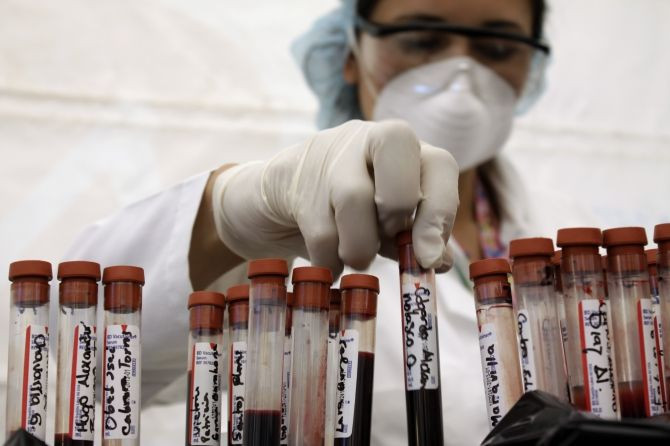New AIDS-Like Disease Cropping Up; Doctors Unsure of How It's Spread

Kim Nguyen was born in Vietnam but has lived in Tennessee since 1975. She had a persistent fever, bone infections, and other bizarre symptoms. She had always been small, but when doctors met her, she was 91 pounds, dwindling to 69 pounds at one point. She said to the Associated Press that she feels fine now, but when she was sick, "I felt dizzy, headaches, almost fell down."
Researchers think that she is a person who has suffered from a mysterious disease in which people suffer from AIDS-like symptoms but do not have HIV.
Sarah Browne and her colleagues identified 203 people in Taiwan and Thailand, where most of the cases have been found since 2004, to enroll in their study on the illness. Within the study, 52 people had a nontuberculous mycobacterial infection (group 1), 45 had the as-yet unidentified disease (group 2), nine people had disseminated tuberculosis (group 3), 49 had pulmonary tuberculosis (group 4) and 48 were healthy (control group).
Those in group 2, as well as in group 1, reported T-cells at similar levels to those of the patients with tuberculosis. When a person contracts HIV, their T-cells levels are low when they are attacked by the virus. Other cells related to the immune system were also affected. The disease ultimately damages patients' immune systems, leaving them vulnerable to other diseases.
The illness, which researchers are calling adult-onset immunodeficiency, does not appear to be contagious. Even still, doctors are left puzzled about the cause. Doctors theorize that the disease is triggered by an infection of some sort, but they do not know what infection would trigger the disease.
The disease has an average onset at age 50, but does not appear to run in families. Because it is not hereditary, doctors have ruled out the idea that a single gene could be responsible for the condition.
Some people have died from it, including some people of Asian descent residing in the United States, but Browne could not estimate the number.
AIDS, or acquired immunodeficiency syndrome, means that the body cannot fight infections by itself. Because it is contracted from somewhere, it is different than children whose immune systems are underequipped or nonexistent from birth.
Though doctors use antibiotics and occasionally a cancer drug to suppress antibodies, and the disease can be quieted when inflammation dies down, they believe that the illness is chronic.
Because nearly all of the sufferers have been either Asian or of Asian descent, they believe that the cause of the disease lies in specific genetic or environmental factors.
The study was published today in the New England Journal of Medicine.
Published by Medicaldaily.com



























